Why am I gaining weight?
If you’re having trouble losing weight, or maintaining your weight, you might be making choices based on outdated information. Some health myths that were once widely accepted and promoted are shunned by experts today. We asked nutrition experts to share the myths that could be holding you back and the truth that could help you reach your goals.
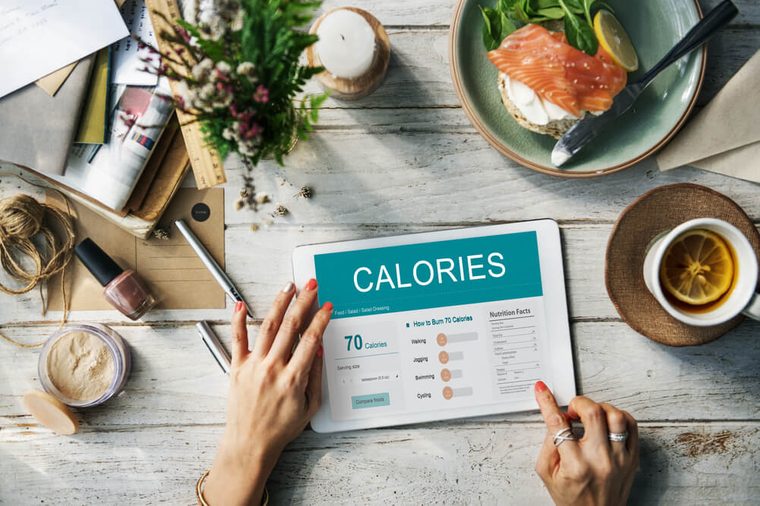
A calorie is a calorie
Wrong. “This is a myth that refuses to die and keeps people from getting and staying healthy, as well as losing weight and keeping it off,” says Mark Hyman, MD, author of Food: What the Heck Should I Eat?. Sure, eating 20,000 calories a day—even if they’re all from fruits and veggies—will make you gain weight. But not nearly as much as eating half that in donuts and processed junk. “Your body is much more complex than a simple math problem. In fact, every bite you eat affects your hormones, brain chemistry, and metabolism. What counts more is the quality, not the quantity, of the calories,” says Dr. Hyman.
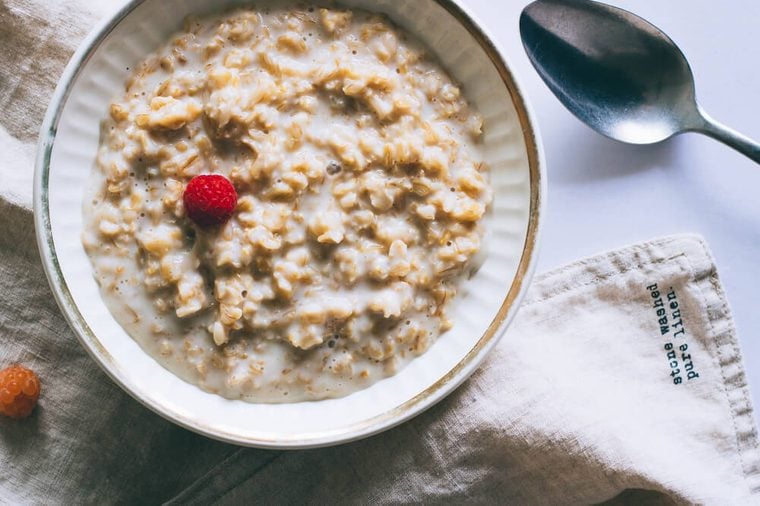
Oatmeal is a healthy breakfast
Not always: You might know that you should stay away from most store-bought oatmeal because it’s full of added sugars, but did you realize that sugar-free ones aren’t great either? “Oatmeal has been touted as heart-healthy because oat bran reduces cholesterol,” says Dr. Hyman. “However, there is often a ton of sugar in instant or microwavable oatmeal, and it spikes insulin and blood sugar, which makes you hungrier.” He says that even if you choose sugar-free oats or steel cut oats, your blood sugar, insulin, and stress hormones will still spike, leaving you hungrier and more likely to eat more the rest of the day.
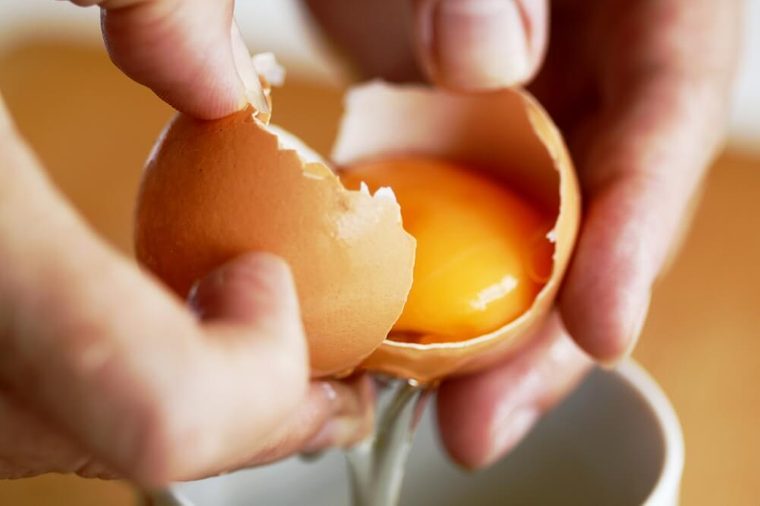
Egg yolks raise your cholesterol and cause heart attacks
Contrary to popular belief, the cholesterol in the food you eat has little impact on the cholesterol levels in your blood. It’s sugar and carbs that trigger the production of bad cholesterol. “The 2015 Dietary Guidelines officially exonerated egg yolks, finding no link between dietary cholesterol and heart disease,” says Dr. Hyman. Plus, the yolk contains choline, which is essential for proper cell function in your body. (Check out these egg recipes to work them into your diet.)
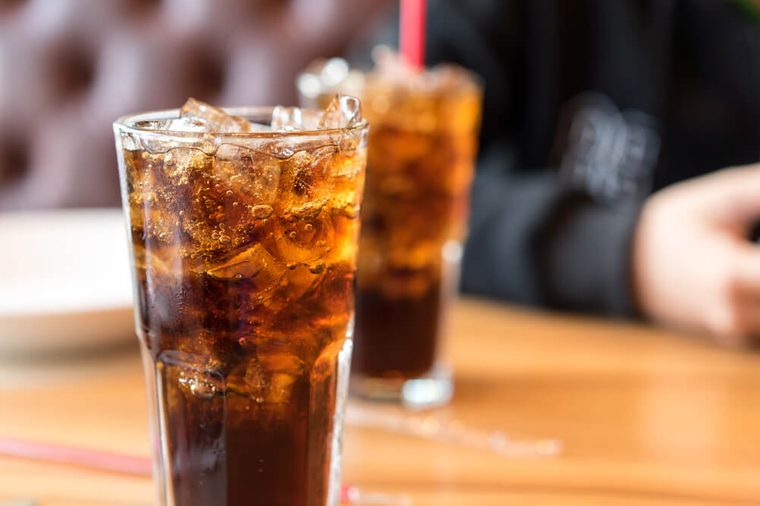
Diet soda is a better choice than regular soda
It’s disappointing news for soda lovers, but this just isn’t true: “Artificial sweeteners are hundreds to thousands of times sweeter than regular sugar, and they activate our genetically programmed preference for sweet taste more than any other substance,” explains Dr. Hyman. “They trick your metabolism into thinking sugar is on its way. This causes your body to pump out insulin, the fat storage hormone, and that increases your belly fat.”

Breakfast is the most important meal of the day
This chestnut refuses to go away, despite research in the American Journal of Clinical Nutrition indicating there’s no difference in weight or general health between breakfast eaters and those who skip the morning meal. Nutritionist and holistic health coach Jennifer Silverman and other experts stress that you should listen to your body and eat when you’re hungry. “Our morning routine sets the tone for the day ahead, and shoveling a bagel or even an omelet into your mouth for breakfast if you’re not hungry is ludicrous,” she says. Many people don’t wake up hungry, and they can feel fine about skipping breakfast, she advises.
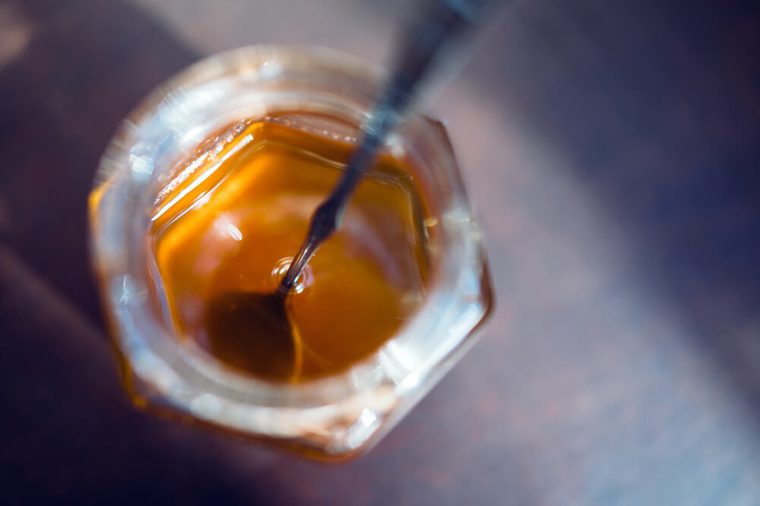
Honey or agave is a better source of sugar than high-fructose corn syrup
Sugar is pretty much sugar, and it doesn’t help anyone to think that honey, agave, brown sugar, Stevia, or coconut sugar are healthy. “From a weight-loss perspective, honey and agave are caloric,” says nutrition and weight-loss specialist Adrienne Youdim, MD. “In the case of honey, it even has a similar glycemic index to high-fructose corn syrup—meaning there will be a rise in blood sugar following ingestion. The goal is to curb the use of sweets, not replace sweets when trying to lose weight.”
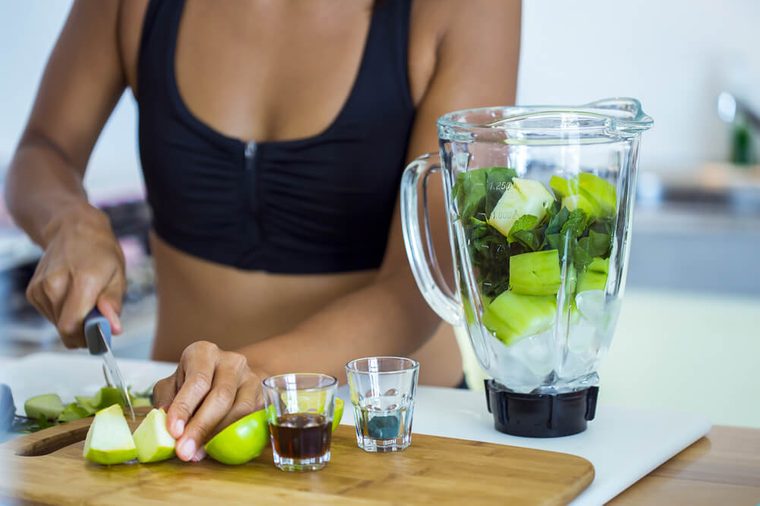
Cleanses help rid your body of toxins that cause weight gain
If you’re looking to cleanse, instead of drinking nothing but juices—which are almost always high in sugar and devoid of fiber—focus on loading your body with fresh produce and lean protein. “We don’t need juice cleanses to get rid of toxins; our bodies do that for us automatically,” says Dr. Youdim. “Worse yet, prolonged cleansing actually hampers weight loss because it results in loss of muscle mass which adversely affects metabolism.” Don’t be fooled by the short-term benefits, you will pay for them in the long-term.
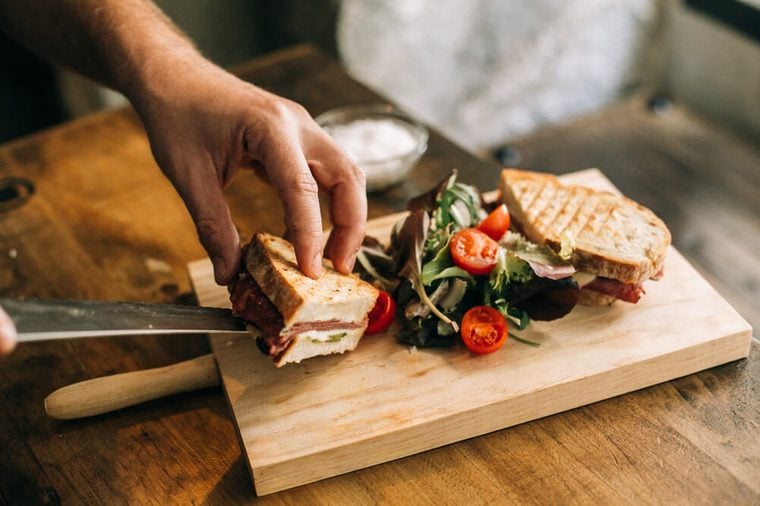
Eat several small meals to lose weight
Some health experts argue that eating every two to three hours will keep your metabolism working at a high level. For many people, eating too often only makes them hungrier. “We end up consuming more calories than we need,” says Silverman. “Waiting longer periods between meals, even fasting, can reset your system, give you more energy and promote weight loss.”

Choose skim or fat-free dairy products
Want to know why avocados are so beloved by health experts? Fat doesn’t make you fat! “Fat is not the problem,” says Dr. Hyman. It may be the solution, he says: “Without the beneficial fat in food, it tastes pretty bad; most low-fat foods like low-fat yogurt and milk are filled with sugars to make them taste better, and sugar we now know is the driving force behind most disease and weight gain.” Because dairy proteins are tough to digest, Dr. Hyman doesn’t recommend eating much except for a little bit of goat cheese, ghee, or grass-fed butter. But if you want milk or yogurt, skip the low-fat versions.
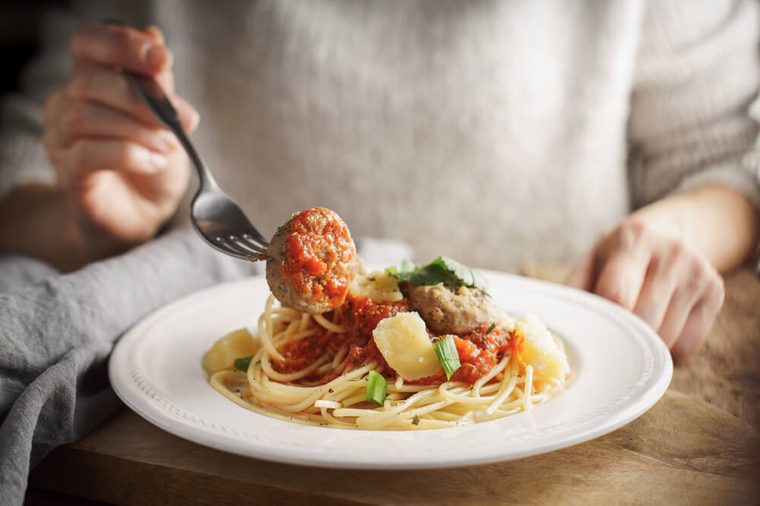
No sweet tooth? You don’t have to worry about sugar
Not so fast: Sugar—in the form of simple carbohydrates—can be savory too. “White flour products like bread and pasta are just a different form of sugar,” says registered dietitian Brooke Alpert, founder of B Nutritious, “That’s why it’s so important to watch your portion sizes of these foods and make sure to always pair them with a fat or a protein to help slow down the absorption of the savory sugar.”

A glass of wine at night can help you sleep better
It might be easier to fall asleep when you have a glass of wine, but as your body metabolizes alcohol sleep can become fragmented, leading you to wake up multiple times throughout the night. “The quality of your sleep declines and this can lead to everything from weight gain to brain fog,” says Alpert.

Gluten-free food is healthy
A sugar cookie is still a sugar cookie, even if it’s gluten-free. “I’ve seen so many patients who can’t drop weight despite going gluten-free,” says Dr. Hyman. “Stick with foods that are naturally gluten-free, like veggies, proteins, and healthy fats.” Note that most gluten-free foods tend to be low or free of fiber (especially packaged ones). Fiber is essential for keeping you feeling full longer, so unless you have a medical reason for going gluten-free, take a pass on this diet strategy.

Weight loss requires willpower
“The reason people binge on bad food isn’t because they lack self-discipline or are weak-willed,” says Dr. Hyman. “They’re biologically addicted to sugar, and willpower doesn’t work here.” In fact, he says, willpower becomes useless when processed, sugar-laden junk food is in charge of your brain chemistry. “Optimizing nutrition by eating enough of the right kinds of foods, managing stress, and getting enough sleep and exercise can all lead to better food choices.”
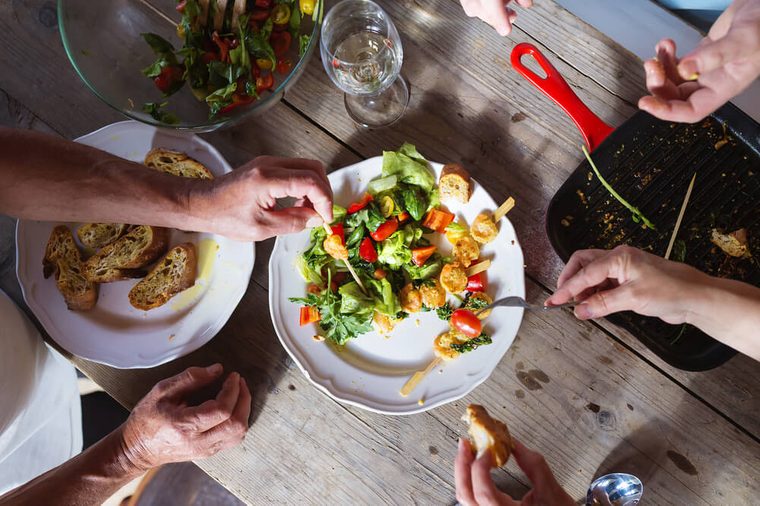
Low carb is the only way to lose weight
Dr. Hyman has something surprising to say: Carbs are the single most important thing you can eat for health and weight loss. In fact, he often says his plan is a high-carb diet. “Carbohydrates encompasses a huge category. A hot fudge sundae and cauliflower both fall into the ‘carbs’ category, yet they are entirely different foods!” In fact, almost all plant foods are full of carbohydrates. “Plant foods are what I refer to as slow carbs, which are low-glycemic and don’t spike your blood sugar or insulin. These slow carbs come loaded with nutrients, fiber, and amazing molecules called phytochemicals. So eat slow-carb, not low carb.” If these myths are shocking, you’ll be surprised to learn these other common food myths.
